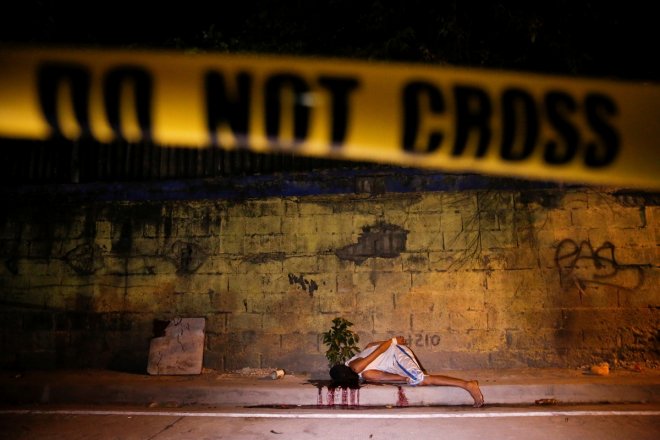
Philippine Catholic leaders and human rights groups referred to President Rodrigo Duterte as "barbaric" and condemned his plan to restore the death penalty and execute "five or six" criminals daily.
Duterte has revived the death penalty in the Philippines, a mainly Catholic nation, and made it his top legislative priority as part of a drug war that has killed nearly 5,300 people. "There was death penalty before but nothing happened. Return that to me and I would do it every day: five or six (criminals). That's for real," the 71-year-old leader said on Saturday.
However, an official at the influential Catholic Bishops' Conference of the Philippines said the Church "totally opposed" Duterte's plan. "The Philippines will be viewed as very barbaric," Father Jerome Secillano, executive secretary at its public affairs office, told AFP. "It's going to make the Philippines the capital of death penalty in the world," he added.
In 2006, the Philippines abolished the death penalty after it faced fierce opposition from the Catholic Church, the religion of 80 percent of Filipinos. But, soon after Duterte took over the office he revived the penalty. According to him, death penalty was not a means to deter crime but for retribution.
The bill was quickly pushed in the House of Representatives by Duterte's allies and is supposed to be voted for by January. Earlier this month, the United Nations' human rights chief, Zeid Ra'ad Al Hussein, wrote a letter to the Philippine Congress saying that the process of reviving the death penalty would violate the country's international obligations.
But, in response to that, Duterte insisted on Saturday that executions were necessary to fight the drug scourge which he said was "destroying" the nation. "Setting a quota for executions is just too much. One death is too much because we are talking about lives," Amnesty International Philippines vice chairman Romeo Cabarde told AFP.
Instead, the Catholic leaders and rights defenders have urged the government to reform a slow and corrupt justice system which they claim was likely to send innocent people to death row.
Secillano added that the bishops have planned to dissuade lawmakers from voting in favour of the death penalty. They would also attend congressional debates next month.
"The death penalty is a shortcut. The government doesn't want to go through any process to fix the penal system," he said.









